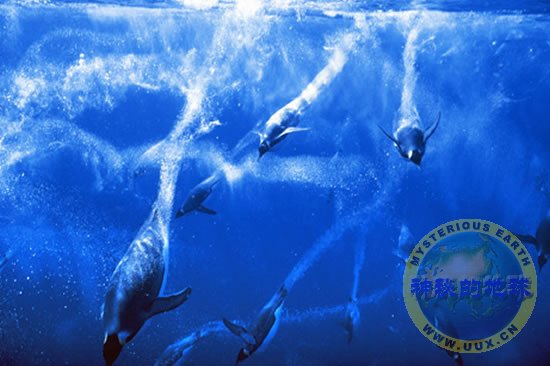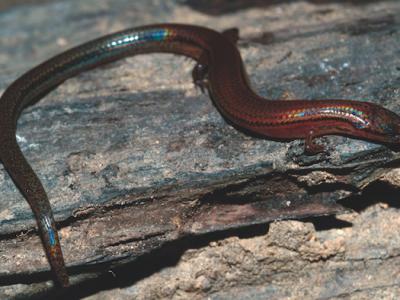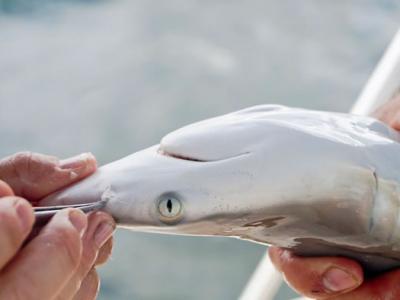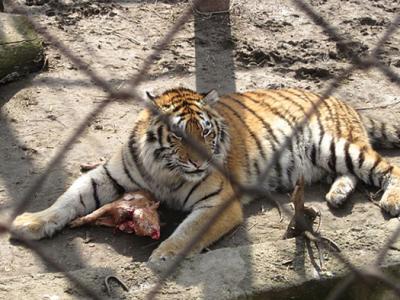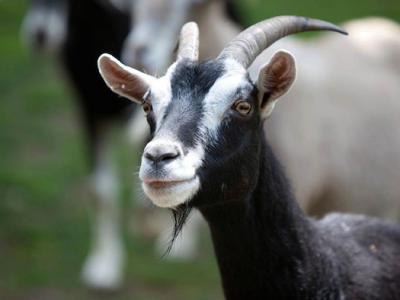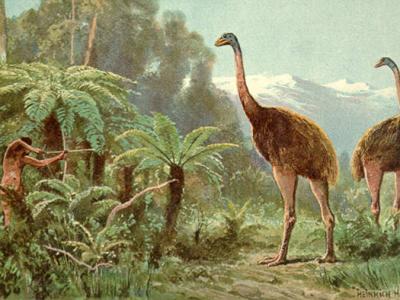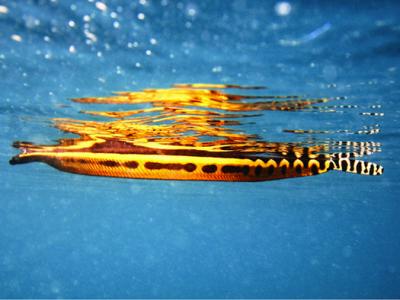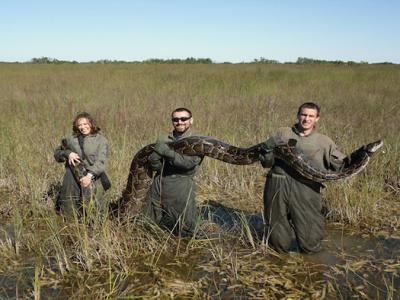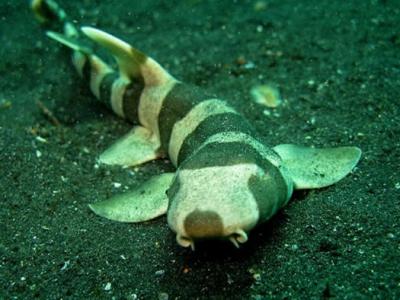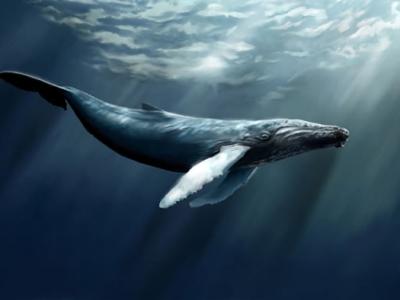Penguins Safely Lower Oxygen to "Blackout" Levels
Streams of bubbles trail behind emperor penguins diving off Cape Washington in Antarctica.
A new study of oxygen in the birds' blood vessels shows that emperors safely return from long fishing excursions under the sea ice with the lowest blood oxygen levels ever recorded in wild animals.
With such depleted reserves, experts say, other creatures would black out and suffer tissue damage.
Photograph by Doug Allen/The Image Bank/Getty Images
Scott Norris
for National Geographic News
December 7, 2007
Emperor penguins may have a supercharged form of a blood protein that allows them to dive underwater for more than 20 minutes on a single breath, a new study suggests.
The research showed that penguins in Antarctica return from long fishing excursions under the sea ice with the lowest blood oxygen levels ever recorded in wild animals.
With such depleted reserves, experts say, other creatures would black out and suffer tissue damage.
The finding suggests that emperors—the largest of all penguin species—may have a hyped-up version of hemoglobin, the blood protein that carries oxygen from the lungs to the body.
Other species are unable to use all the oxygen in their lungs—even when starved for air—because their hemoglobin cannot efficiently bind with and carry oxygen in low concentrations.
But penguin hemoglobin appears to be extra-sensitive, scooping up the last remaining oxygen in the birds' air sacs and delivering it to vital organs.
"We hypothesize that the emperor can store more oxygen in its blood due to different binding properties of its hemoglobin," said lead study author Paul Ponganis of the Scripps Institution of Oceanography in San Diego, California.
"This would allow it to use its lung oxygen completely and would also provide a greater oxygen content at low oxygen pressures so that there is no tissue damage."
The findings appear in the current issue of the Journal of Experimental Biology.
Penguin Ranch
Emperor penguins can dive down to 1,850 feet (565 meters) while searching for fish, squid, and krill in the open ocean.
The penguins have a variety of adaptations that help them increase their ability to store oxygen and control its consumption rate.
For example, higher concentrations of hemoglobin and the blood protein myoglobin allow emperor penguins to store about 2.5 times more oxygen per unit of body mass than humans, Ponganis noted.
The birds also conserve oxygen by slowing their heart rate to as low as five beats a minute on long dives, even while chasing after fish.
"If we can understand why a diving animal does not incur tissue damage when exposed to low oxygen levels and low blood flow, [we may gain] a better understanding of how such damage occurs in humans and how it might be prevented," Ponganis said.
For the new work, Ponganis and colleagues monitored oxygen levels inside the blood vessels of wild birds living temporarily at the "Penguin Ranch" research facility on McMurdo Sound in southern Antarctica.
(Read "'Penguin Ranch' Reveals Hunting, Swimming Secrets" [January 30, 2004].)
The thick layer of sea ice on the ranch is broken only by diving holes drilled by scientists. Since the birds are too far away from other openings, they must return to the same location after fishing trips.
The study penguins were equipped with tiny sensors inside their air sacs. These sensors transmitted data to special recorders strapped to the birds' backs.
Most of the recorded dives were under six minutes long, but some were substantially longer—including a 23-minute descent that stands as the longest known emperor penguin dive.
David R. Jones has studied the physiology of diving ducks at the University of British Columbia in Vancouver. He was not involved in the penguin research.
"I think it's just amazing that these animals are able to push themselves to such a degree that they use up virtually all of their oxygen stores in their respiratory system and blood," Jones said.
And the ability of Ponganis and colleagues to collect blood-oxygen data in the bitter cold of Antarctica is "amazing," Jones added.
"This is a really important contribution to the field of diving physiology."
